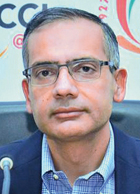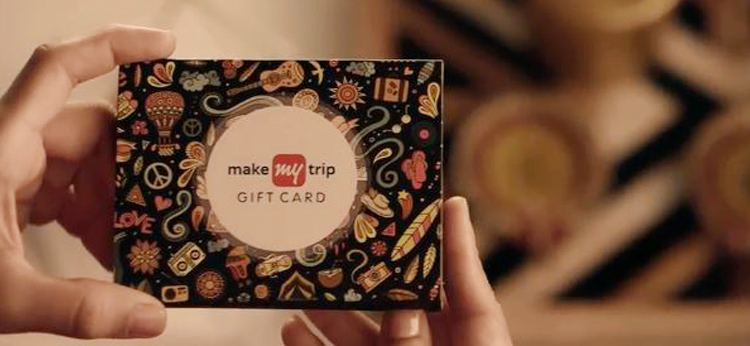Deep Kalra was on the hot seat once again as he answered some tricky questions pertaining to the biggest deal in the recent years – MakeMyTrip and Goibibo merger. He shared that it was a change in perception regarding GoIbibo which helped him in cementing the deal and the bigger challenge lied ahead in making it work as a cohesive unit. Excerpts of his discussion at FICCI Summit.

FOUNDER & CEO,
MAKEMYTRIP
Bibek: Talk to us about the big merger with Goibibo. How did the deal pan out? What were the challenges therein?
Deep Kalra: We are very excited about the team that has come onboard from GoIbibo as well as from Redbus. We have been spending the last couple of months entirely on this merger and what is called Post Merger Integration which is far more complex than I had ever imagined. There is a reason why they say that most mergers do not work. I think we have got to put in a lot of effort and are fully cognisant of the fact that many do not work therefore, we are putting in a lot of focus to make this happen. The reason behind the merger is not just consolidation and what happens on a financial basis. The markets are obviously very excited and have given a big thumbs up to it. We do not want to get ahead of ourselves and I think markets can punish you very severely and also reward you very handsomely. What is exciting is the quality of the cake. That is the key reason that this deal even happened. I can share quite candidly now, that the turning point for me, about the way we looked at Goibibo from being a discount shop to being a cutting-edge technology player. There are some very clever technologies that Goibibo has built. The turning point for me was when I took a look at their extranet. Extranet is a cloud based tool that we use to connect to our hoteliers, so we have ours as well and companies like Booking.com have theirs which they get the hotels to use. The larger hotels like the Taj group are far more sophisticated and are hosted on a different platform where you can have direct connectivity just like with an airline. But 95% of India’s inventory is independent hotels and they do not have the sophistication to invest in that kind of a tool. So, you have to give them a very simple web based tool where they upload their inventory position or they will give you allocations so that real time will be available. So, when you are looking for a hotel in Goa and you do not know any of these properties, we will give you all the content. You will see all the pictures, reviews which you want. To cut the long story short, when I got privy to seeing Goibibo’s extranet, I was fully blown away and I thought they had done a world class job. I recall telling my folks that we had been Ostriches and basically been delusional, which is the biggest risk of being a market leader. From that day onwards we started figuring out how we can probably make this work. The other factor was very clear that Naspers and Goibibo were not giving up on their discounting. So, both things were happening, they were quite good in technology, very fast and far more agile, but more interestingly they were ready to keep on investing in this market. I had a call with Naspers’ CEO, who is based in Holland, Bob, and he was very clear that they were going to be very aggressive. That was their playbook and there was no dearth of capital per say and I do not think that we were ready for a long fight of attrition. We had been doing it since 2005 and it was not helping our cause. We were seeing a lot of value getting eroded because investors were saying that clearly, we see that you are the leaders but when do you start going back to making money? 2 years after IPO we had made 10 million dollars and after that with the Kingfisher bust we had to go in to the red and keep investing. They wanted to know when this would change and that was a question I was getting every quarter from my investors. So, I thought that consolidation does make sense. I also took a leaf out of the China online travel playbook. Ctrip had done a pretty interesting job in terms of an acquisition of elong and then a merger with Qunar. I think hindsight says that we probably did the right thing but time will tell. We have to make this work. It is still very early days and we are in the honeymoon period. Exciting times ahead, a lot of work but a lot of fun.
Bibek: From 2005 to now, in the last 12 years, what are the kind of changes that you have seen? We are all aware that digital technology is changing at a very rapid pace. In India, travel preferences are also keeping pace with these kinds of changes. What are the kind of changes do you see?
Deep Kalra: In 2005, we sold our first online ticket in India. I remember the first 2 years I would go to a lot of conferences and had made a statement in one of the conferences that if the industry did not move online then, half the people present there would be out of business pretty soon. Today 65 percent of all airline tickets in India are sold online and this has happened fairly rapidly and it is not going to stop. Yes, there will be some high end haggling as this is domestic air. OTAs have about 48-50% market share of this total pie, another odd 15% is with the airlines. Our brands together is about 22-23% of the market share and this has all happened pretty rapidly. The compelling case as to why this happens is very simple. When you are looking to buy an air ticket, you are only interested in two or three dimensions. Number one is price. Very often you know the brand because you have flown before. Timing is very important and then it comes to the big decision which is all the frills like business or economy class. But really it is a poise and timing thing when you look at a domestic ticket, point A to point B. What is international becomes more interesting. MICE becomes even more important. Very often you are travelling for leisure as a family of four and the bill to go to Europe or US gets in to several lacks so you shop more and therefore offline still does well. There deals in the markets tend to last when people start shopping more. But the reality is that all these decisions can be broken down very well and rendered through technology very easily. You do not really want to speak to someone, you just want your answers. In fact, speaking to someone has become a pain for some people because it is about how you see all the options conveniently on a screen, through AI or a voice enabled platform, large or small, in a smooth and efficient manner. How do you read out all the options for me? There are probably a hundred flights between Delhi and Mumbai. You want to see them with the time and price sorted and boom we are done. So, there is a very compelling reason to move online. In-fact there is even a more compelling reason for post sales to move online. The most painful thing I think we have all seen, is holding on to the phone while an operator picks up the call and then you get shunted around. When someone is looking to maybe cancel their ticket or a small thing like that, all this is better served online. People want to actually capture that and save that. They want to save an audit trail and question the operator if a refund which was promised in a week has not reached the customer in 10 days. We deal with this all the time and are actively trying to move this not only online, which it is, but actually to it being AI and chatbot enabled because that can do this job in a much better and relentless manner without any fatigue. My thesis for actually starting an online company was that travel is made to go online. It is a perfect fit just like stockbroking. Some businesses are just inherently made to go online very fast. The part of travel which I do not think will go online in a long time, eventually it will, will be complex holiday planning. We have invested in a company, Inspirock, which does only holiday planning, which is very exciting. But the reality is that people still have myriad questions and they want assurances. Specially the first time traveller, you can capture a lot of them but there will always be one more. People have all the time when they want to spend 5-10 lacks on their annual vacation and they will talk to a lot of people. In India, it is often Visa issues for which you need hand holding. This can be done online, but it is cumbersome. I think that will probably still remain the domain of on to off line but domestic holidays are moving online at a ferocious space.




































